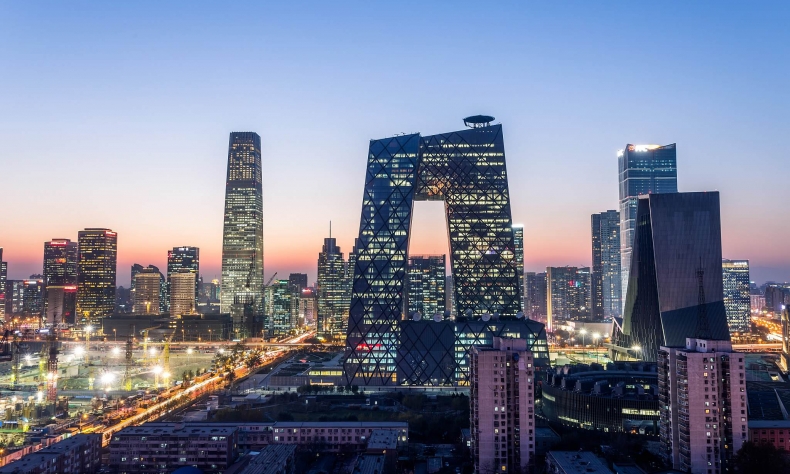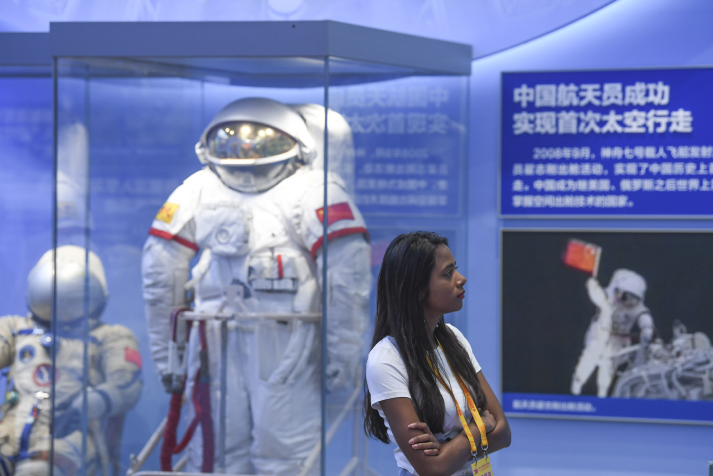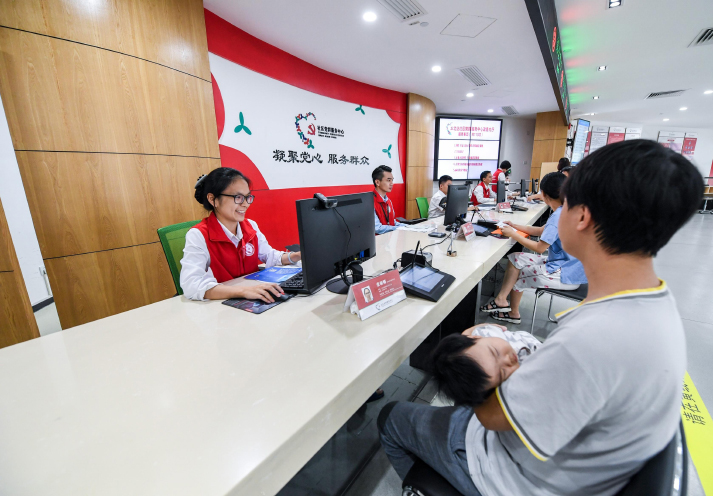
A Requirement of Present Times
Improving national governance tops China’s agenda
How to build a new socialist country and improve the capacity of national governance has been a key task of the Communist Party of China (CPC) and the whole nation since the founding of the People’s Republic of China (PRC) 70 years ago. After hard work by generations, great headway has been made in the governance of the country.
The Fourth Plenary Session of the 19th CPC Central Committee in October pointed out that it is a major strategic task of the CPC to uphold and improve the system of socialism with Chinese characteristics and advance the modernization of China’s system and capacity for governance. This fully demonstrates the importance and urgency of modernizing governance.
Socialism with Chinese characteristics requires modernization of national governance. How should a socialist country be governed? The answers couldn’t be found in the classic Marxist-Leninist writings, nor in other countries’ political practices.

The necessity
The modernization of governance is part of China’s overall modernization drive. Chairman Mao Zedong proposed modernization of the industry and agriculture as early as 1945. Premier Zhou Enlai formally put forward the Four Modernizations goal at the First Session of the Third National People’s Congress in 1964, meaning the modernization of agriculture, industry, national defense and science and technology.
China’s modernization gathered full steam after reform and opening up began in 1978. Late Chinese leader Deng Xiaoping stressed on multiple occasions that besides the Four Modernizations, modernization should also cover the economy, politics, laws, society and education.
The 18th CPC National Congress in 2012 came up with the Overall Plan for Development in Five Areas, which aims to promote economic, political, cultural, social and ecological progress and emphasizes the coordinated development of different aspects of modernization.
President Xi Jinping, also General Secretary of the CPC Central Committee, put forth the modernization of the governance system and capacity at the Third Plenary Session of the 18th CPC Central Committee in November 2013, which enriched the concept of modernization and became its fifth component.
When the PRC was founded in 1949, it was in a preliminary stage of socialism and a national governance system was needed. There were efforts to explore a path of socialism suitable for China by drawing on the development experiences of the Soviet Union and adapting Marxism to China’s realities. After the reform and opening-up program was initiated in the late 1970s, socialism with Chinese characteristics entered an exploratory period and national governance was carried out across the board.
Deng highly valued the development of systems, former Chinese President Jiang Zemin paid great attention to Party governance, and his successor Hu Jintao advocated social administration. Since the 18th CPC National Congress, socialism with Chinese characteristics has become full-fledged and national governance has made strides.
Governance modernization is intrinsic to a modern country. When the PRC was founded, it adopted a centralized governance model. As the only governing entity, the government was in charge of everything. At the Third Plenary Session of the 18th CPC Central Committee, the Party made a strategic choice to advance national governance modernization.
A communiqué released at the end of the Fourth Plenary Session of the 19th CPC Central Committee pointed out that socialism with Chinese characteristics is a scientific system developed by the Party and the people after long practice and exploration. All the work and activities of China’s national governance are carried out under this system.
To modernize governance is the requirement of the present times. National governance modernization needs to be advanced to address challenges in contemporary China. The development model dominated by the government has met with bottlenecks, leading to a lack of momentum in reform and innovation. Also, under the old model, the income distribution gap became increasingly wider and corruption became frequent.
Instead of the government being the only actor, the new governance model emphasizes the coordinated efforts of and democratic consultation among diverse participants including the government, society and citizens in dealing with public issues. The transformation of the governance model reflects profound changes in the distribution of power.

The principles
The concept of governance was formulated by American political scientist and international affairs scholar James N. Rosenau in the 1990s. But compared with the governance theory and practice in the West, China’s governance is more centralized, with the Party and the government being the top-level designers playing pivotal roles. The range of governance in China is also broader, covering areas such as the economy, politics, society, culture, ecology and political parties, as well as national, regional and community levels.
State governance should be modernized under the framework of socialism with Chinese characteristics in keeping with a people-centered approach. Its goal should be to serve the people. People’s interests are paramount, their basic rights and interests should be protected in accordance with the law, and their ever-growing needs for a better life should be satisfied.
The Party’s leadership should be upheld in modernizing governance. In the face of the complicated domestic and international environment, it’s urgent to improve the Party’s governance method and leadership style, strengthen its institutional development and regulate the exercise of power.
Governance modernization should be carried out under the rule of law to keep power within the confines of systemic checks. Awareness of the rule of law should be promoted, and the Constitution and other laws should be upheld as the highest criteria for national governance.
Global governance is also an important part. The contemporary world is undergoing major changes as interactions between countries are intensifying as a result of economic globalization, political multi-polarization, cultural diversity, and the adoption of intelligent technology. Opportunities for cooperation are also increasing. Countries need to strengthen communication for coexistence and development.
China’s development cannot be separated from the world’s and the world also needs China to achieve prosperity. In recent years, China has played a more important role in international affairs by proposing the Belt and Road Initiative and setting the goal of building a community with a shared future for humanity.
This demonstrates China’s sense of responsibility as a major player on the world stage.
The author is deputy dean of the School of Political Science and Public Administration at the China University of Political Science and Law
(If you want to contribute and have specific expertise, please contact us at chinafocus@cnfocus.com)
 Facebook
Facebook
 Twitter
Twitter
 Linkedin
Linkedin
 Google +
Google +










